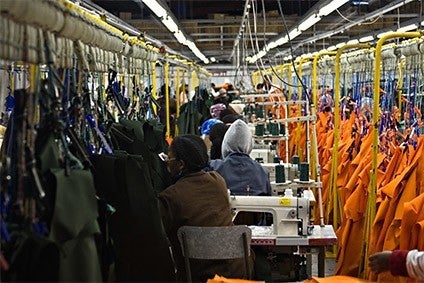
Last month the EU warned the government that concerns over the latter’s alleged human rights violations could negatively impact trade relations between the two, with Sri Lanka’s apparel sector set to be the biggest loser should the threat be realised.
The EU’s GSP+ trade concession allows Sri Lankan exports to Europe without taxation. This has been a big boost to Sri Lanka’s apparel and fishing industries. It has been present since 2017.
Tuli Cooray, the Secretary-General of Joint Apparel Association Forum Sri Lanka (JAAFSL), said the loss of the concessions would considerably affect the apparel sector amidst the prevailing pandemic.
Speaking to The Morning Business, a local newswire, he raised concerns competitor supplier markets would steal share of Sri Lanka’s RMG exports.
“The cost of operation in Sri Lanka is far higher than the one in Bangladesh, India, Indonesia, Cambodia. Thus, countries such as Bangladesh, India (while being the largest fabric supplier in the global market) and Indonesia, in fact, would be benefitted unlike Sri Lanka due to the fact that the cost of operation is lower than the one in Sri Lanka as well as the countries who receive GSP facility among the mentioned, would apparently be benefitted.”
Sri Lanka’s apparel sector has been significantly impacted as the country grapples with a third bout of coronavirus.
Last month garment manufacturers launched a plea for brands and retailers to operate fairly as a vaccine delay added to existing issues impacting the supply of orders.
“A single quantity of goods which costs approximately US$500m is being exported by a large number of people to the EU and among those exported goods, almost 90% of them are exported on the GSP Plus basis… This could result in a total disaster in terms of export income.”



